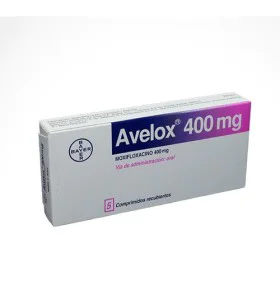


Moxifloxacin plays a crucial role in managing drug-resistant tuberculosis by leveraging its unique ability to target bacterial DNA and oxidative processes. It generates reactive oxygen species (ROS) within Mycobacterium tuberculosis, leading to lethal oxidative stress and cellular damage. The drug also influences metabolic pathways, including NADH-reductive stress, further amplifying its bactericidal properties. Adjunct therapies, such as N-acetyl cysteine, have been shown to enhance moxifloxacin's effectiveness and limit resistance emergence, making it a key agent in shortening TB treatment durations.
Shee, S., Singh, S., Tripathi, A., Thakur, C., Kumar T, A., Das, M., Yadav, V., Kohli, S., Rajmani, R. S., Chandra, N., Chakrapani, H., Drlica, K., & Singh, A. (2022). Moxifloxacin-Mediated Killing of Mycobacterium tuberculosis Involves Respiratory Downshift, Reductive Stress, and Accumulation of Reactive Oxygen Species. Antimicrobial Agents and Chemotherapy.
Disclaimer: Information provided it this page is for general information only and does not substitute for professional medical advice.
For detailed information about Avelox 400 by Bayer, consult with your doctor or healthcare professional.


Shee, S., Singh, S., Tripathi, A., Thakur, C., Kumar T, A., Das, M., Yadav, V., Kohli, S., Rajmani, R. S., Chandra, N., Chakrapani, H., Drlica, K., & Singh, A. (2022). Moxifloxacin-Mediated Killing of Mycobacterium tuberculosis Involves Respiratory Downshift, Reductive Stress, and Accumulation of Reactive Oxygen Species. Antimicrobial Agents and Chemotherapy.

Shee, S., Singh, S., Tripathi, A., Thakur, C., Kumar T, A., Das, M., Yadav, V., Kohli, S., Rajmani, R. S., Chandra, N., Chakrapani, H., Drlica, K., & Singh, A. (2022). Moxifloxacin-Mediated Killing of Mycobacterium tuberculosis Involves Respiratory Downshift, Reductive Stress, and Accumulation of Reactive Oxygen Species. Antimicrobial Agents and Chemotherapy.

Shee, S., Singh, S., Tripathi, A., Thakur, C., Kumar T, A., Das, M., Yadav, V., Kohli, S., Rajmani, R. S., Chandra, N., Chakrapani, H., Drlica, K., & Singh, A. (2022). Moxifloxacin-Mediated Killing of Mycobacterium tuberculosis Involves Respiratory Downshift, Reductive Stress, and Accumulation of Reactive Oxygen Species. Antimicrobial Agents and Chemotherapy.